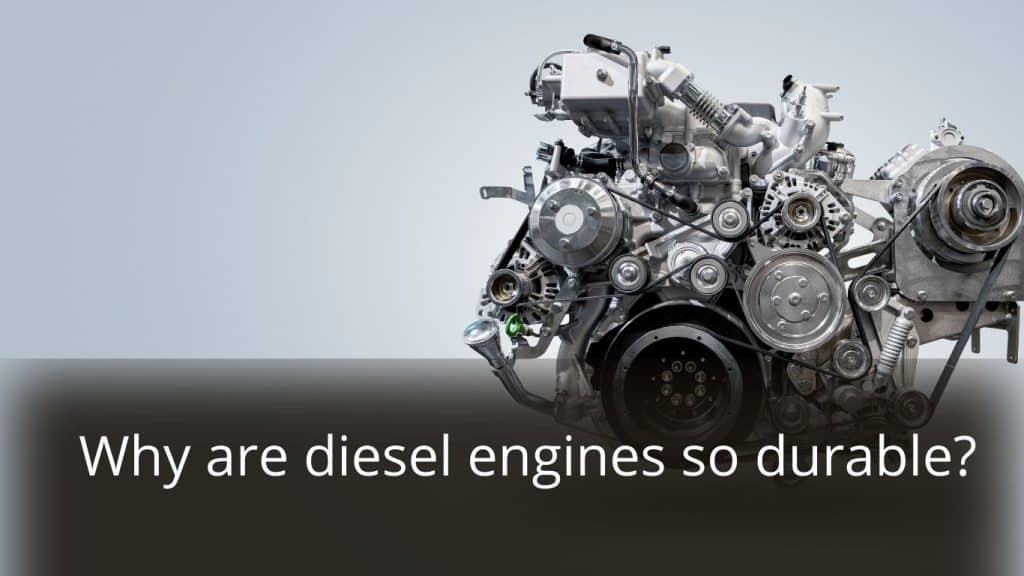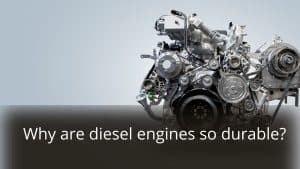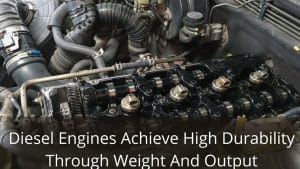What is a diesel engine?
Why are diesel engines so durable, it is a type of internal combustion engine. This means that the combustion of the fuel and air occurs in a chamber inside the engine. This is in contrast to an external combustion engine, where the fuel and air are mixed outside of the engine and then ignited. Internal combustion engines are more efficient than external combustion engines because they do not lose energy to the environment. They also produce more power from the same amount of fuel. A diesel engine is a type of internal combustion engine that uses diesel fuel as its source of ignition.
Diesel engines are popular in a variety of applications because they offer several advantages over other types of engines. Diesel engines are very efficient, and they produce low emissions, making them environmentally friendly. They are also very durable, which makes them a good choice for transportation and construction applications.
What are the benefits of diesel engines?
Diesel engines are more efficient than gasoline engines. They produce less pollution and are still used to power heavy vehicles. However, their future in cars is uncertain because of the increasing popularity of electric cars. Diesel engines are becoming more efficient, and many car companies are investing in developing better diesel engines.
Diesel engines have many benefits over electric cars. Diesel engines are more durable and can go further on a tank of fuel. They also provide more power, which is important for towing and hauling. Finally, diesel engines are less expensive to maintain than electric cars.
Diesel engines are more efficient than gasoline
A diesel engine is an internal combustion engine in which the fuel, or a combination of fuels, is ignited with a high-temperature heat source inside the cylinder. This contrasts with spark-ignition engines, in which the fuel is ignited by a spark plug. This also contrasts with gasoline engines, where fuels are mixed with air before ignition.
The process of mixing diesel fuel and air for internal combustion is called dieselization.
Diesel engines work by compressing only the air. This increases the air temperature inside the cylinder to such a high degree that atomized diesel fuel that is injected into the combustion chamber ignites spontaneously.
The result is a self-healing process that continues as long as the fuel and air are supplied and nothing prevents the ignition from occurring.
Diesel engines are more durable
Diesel engines are more durable than gasoline engines because diesel fuel does not contain the same volatile compounds as gasoline. Diesel also has a higher flash point, which means that it is less likely to ignite due to an external spark.
Diesel engines are more powerful
One of the reasons that diesel engines are more powerful is that they have higher compression ratios. This means that there is greater pressure on the gas and air mixture inside the engine, which means that the engine is able to produce more power. This also means that diesel engines are better at combusting fuel, which gives them a higher efficiency rate than gasoline-powered cars.
Diesel engines are easier to maintain
Diesel engines are easier to maintain because diesel fuel is usually less pricey than other fuels, and it can be stored for longer periods of time. They also require fewer scheduled tune-ups or oil changes and can last longer, so they do not need to be replaced as often.
How do diesel engines achieve such high durability?
Diesel engines are becoming more popular as people realize their many benefits. They are more versatile and efficient than gasoline engines, but they produce more pollutants. However, diesels engines have high durability because of their strong construction and fuel efficiency. This makes them a good choice for vehicles that need to last a long time without requiring too much maintenance.
Indeed, diesel engines have high durability due to their improved efficiency. This increased efficiency is made possible by the continual evolution of diesel engines- a trend that may see diesel engines achieving up to 60% efficiency in the future. Such an improvement would be unprecedented and would make diesel engines even more desirable for heavy-duty applications.
Diesel engines achieve high durability through a piston design
Diesel engines are highly durable because they use a piston design that minimizes friction. Unlike gasoline engines, diesel does not ignite at the spark plug. Instead, it ignites when fuel is sprayed into the engine and heated by a glow plug. This combustion creates pressure that pushes pistons down, making them compress air in each cylinder, which forces it to expand through an exhaust valve.
Diesel engines achieve high durability through a fuel injection system
The fuel injection system of a diesel engine is the most important part of achieving durability. The injectors spray an ultra-fine mist of liquid fuel into the combustion chamber, which then ignites. This process prevents the fuel from evaporating and clogging up nozzles. When a cylinder has been in use for some time, the kinetic energy of the injected mist helps clean out accumulated soot from the cylinder walls.
In addition to this, diesel fuel is less volatile than gasoline. This means that it will not evaporate as readily and therefore clog up injectors, which are usually very fine nozzles. The fuel injection system of a diesel engine is the most important part of achieving durability.
Diesels engines achieve high durability through a combustion process
Diesel engines achieve high durability through a combustion process. The engine has the ability to take in air and fuel, heat them up to very high temperatures, and then mix these two very hot substances together. This creates an environment that is perfect for combustion, which releases the energy from the fuel. As a result of this process, diesel engines have higher durability than gasoline engines and can last up to 50% longer.
Diesel engines are more durable than gasoline engines because of their combustion process. The diesels engine is able to heat up the air and fuel to very high temperatures, which creates an environment that is perfect for combustion. This high temperature allows the air and fuel to mix together perfectly, which releases energy from the fuel.
Diesel engines achieve high durability through weight and output
Diesel engines are typically heavier than gasoline-powered equivalents. This is because diesel fuel has a higher energy density and less air needs to be compressed, which means that the engine can run with smaller, lighter cylinders.
Diesel engines also have a high compression ratio, which means that more fuel is injected and the engine has greater thermal efficiency. This improves engine durability because it reduces heat losses in the engine.
The higher compression ratio also means that diesel engines are more difficult to start because the air needs to be compressed before it ignites. This is why diesel engines have glow plugs – they preheat the air before it is injected into the cylinder.
Why are diesel engines becoming more popular in the United States?
Diesels engines are becoming more popular in the United States for a variety of reasons. One reason is that diesel engines generate less heat than gasoline engines, making them easier to maintain. Additionally, diesel engines produce more power than gasoline engines, making them better suited for heavy-duty tasks. Diesels engines also have a longer lifespan than gasoline engines and don’t require frequent maintenance. Finally, diesel engines are less polluting than gasoline engines, making them better for the environment.
Diesels engines produce more torque than gasoline engines
Diesel engines produce more torque than gasoline engines, which makes them a better choice for trucks and other heavy machinery. Fuel is also less expensive per gallon than gasoline, which means that the consumer will spend less time and money maintaining their vehicle.
Diesel fuel is less expensive than gasoline
Diesel fuel is less expensive than gasoline because diesel engines are more efficient. Diesel engines create more torque at low speeds and use this power to turn the engine faster which makes them better for heavy loads.
Diesel engines also have a higher fuel efficiency in the first two gears, which is perfect for driving on highways.




